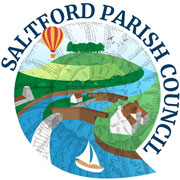Bath & North East Somerset (B&NES) Council is raising awareness of how people can use wood-burning stoves and have bonfires responsibly to protect their health and that of others.
New Government restrictions to phase out the sale of coal and wet wood for home burning came into force on May 1 to cut harmful pollution to human health.
Burning wood or other solid fuels at home emits dangerous pollution indoors and into the wider environment, known as fine particulate matter or PM2.5. This is a known carcinogen and can cause asthma, heart disease and other serious illnesses affecting the lungs, heart and brain.
B&NES Council has seen an increase in the number of complaints about smoke nuisance and burning since the first lockdown in 2020.
A new webpage helps residents choose the cleanest possible fuel for their home and offers advice on wood burning and open fires.
An alternative fuel for wood-burning stoves to reduce the impact on local air quality could be eco-briquettes that use compacted waste hardwood. The material is much drier, burns hotter and produces far less smoke than damp wood.
To apply for financial assistance to make energy efficient improvements to your home, visit B&NES Council Energy At Home website.
Becky Reynolds, Director of Public Health at B&NES Council, said: “There is no proven safe level of PM2.5 and exposure to it can increase the risk of early death from respiratory and cardiovascular diseases. During the Covid pandemic it’s even more important to be mindful of your own health and that of others when using wood-burning stoves or lighting bonfires.”
Bonfires are not illegal and therefore the B&NES Council Environmental Protection team is only able to investigate burning that is regularly causing a smoke nuisance at someone’s home or workplace. Burning should be avoided wherever possible and residents could use council recycling centres or waste collection services instead.
If a bonfire is necessary, following this guidance will help avoid affecting others living nearby:
- Consider wind direction – avoid burning when smoke is likely to blow to neighbouring properties
- Only burn dry material, as wet materials produce more smoke
- Only burn clean untreated material such as dry branches or dry garden waste
- Do not burn, plastics or painted wood, as this would cause more acrid smoke
- Let your neighbours know in advance that you plan to have a bonfire with your neighbours before you burn
- Do not burn often
Smoke from continuing bonfires can be reported to the B&NES Council Environmental Protection team. Visit this page to find out more about how the council can help with smoke nuisance.


